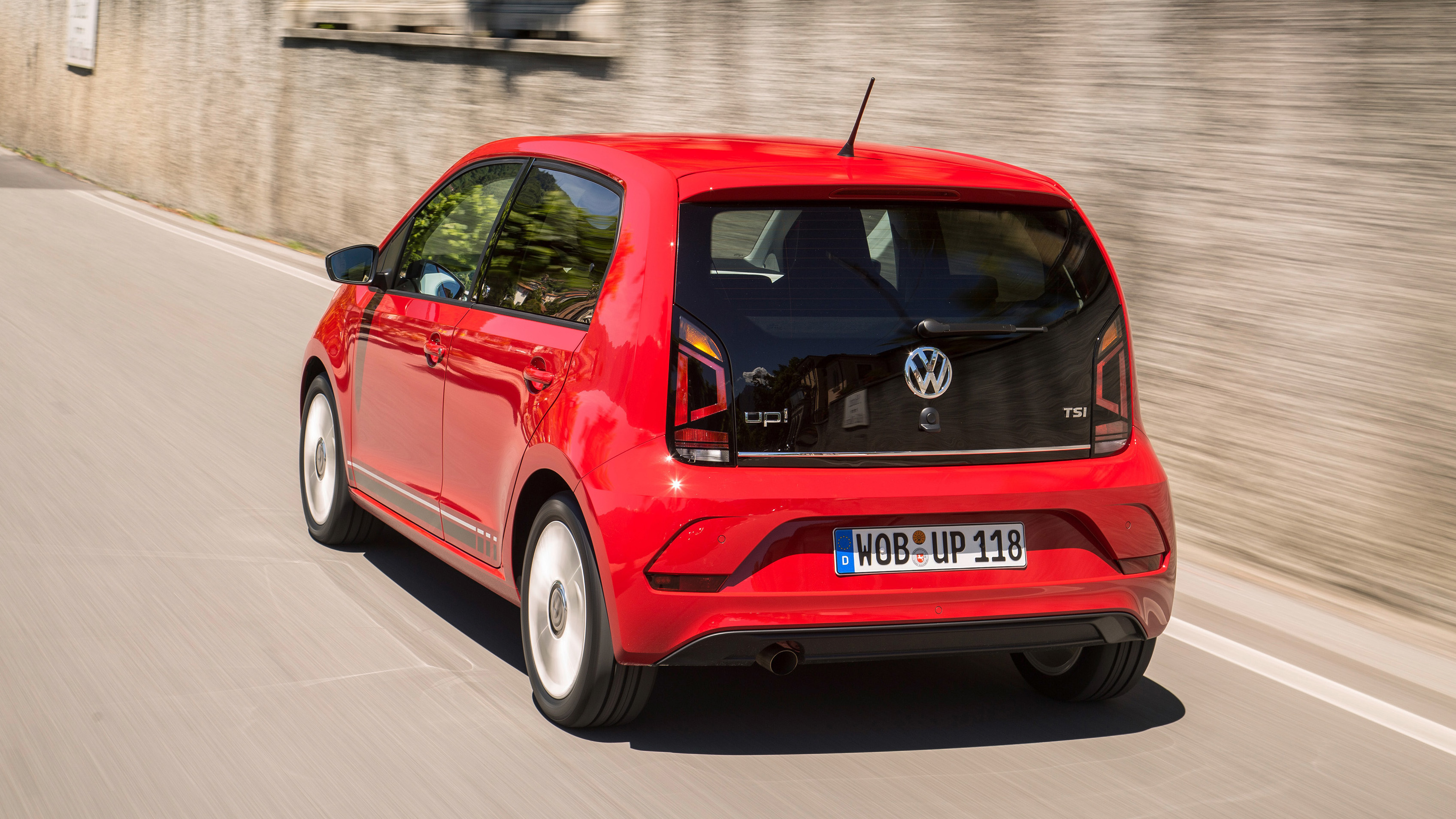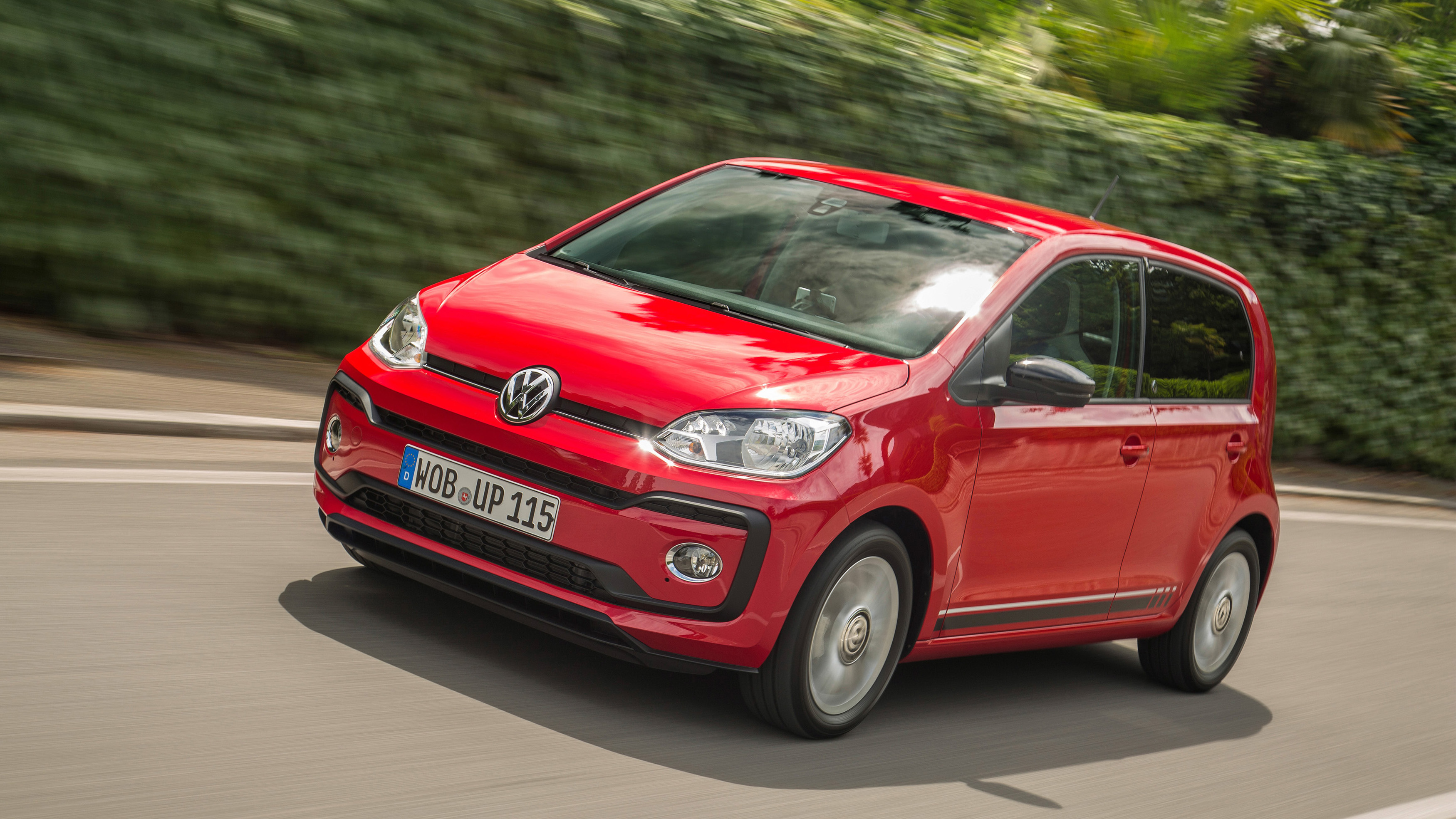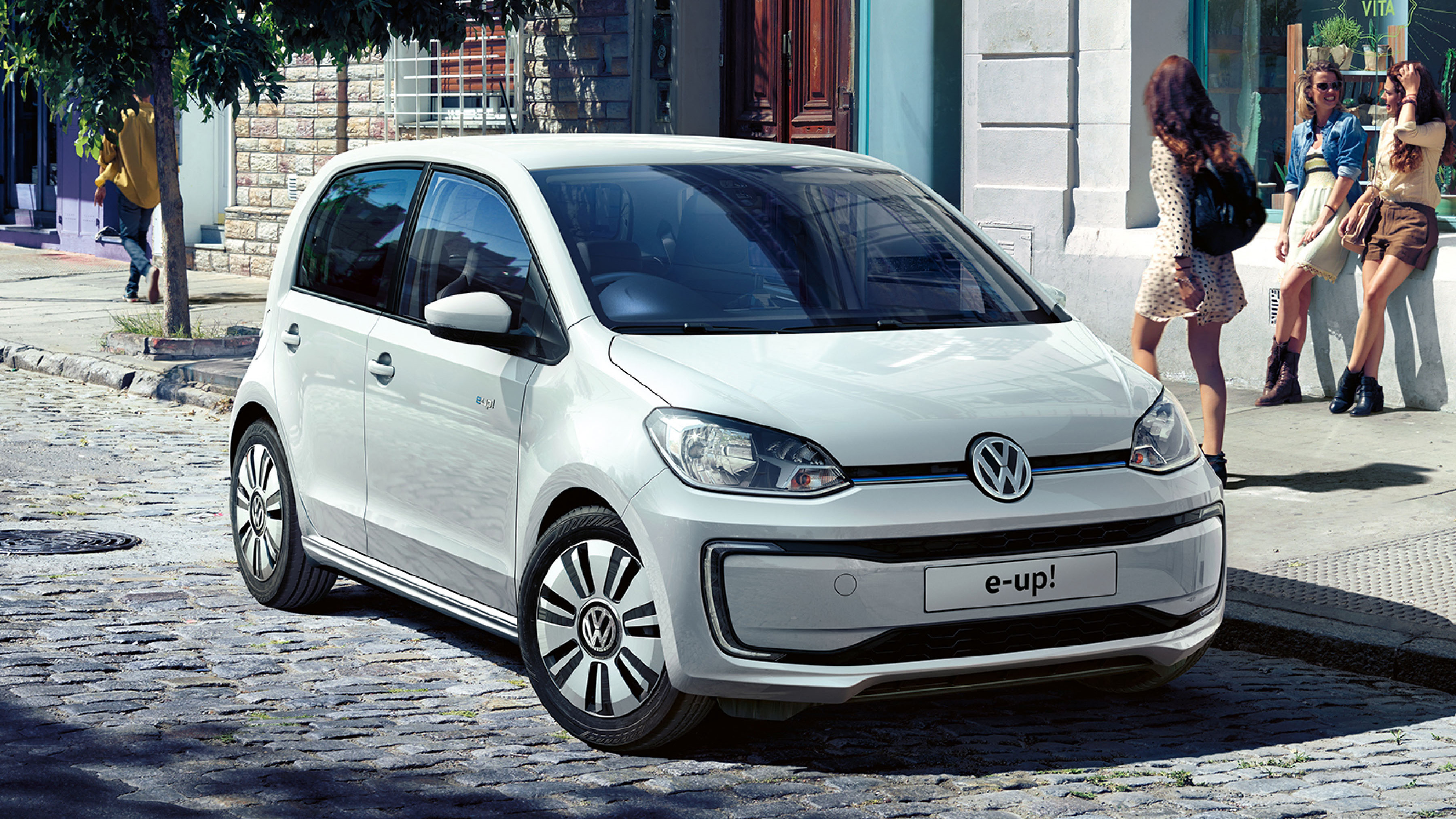
VW says the Up can’t survive if it’s not electric
Not enough profit and too much CO2 could kill off VW’s brilliant city car
Sad news from Geneva if you’re a fan of teeny, lightweight, characterful and hilariously over-engineered German city cars. The Volkswagen Up is not long for this world – unless it goes electric.
That’s the conclusion drawn by VW’s marketing boss and ex-Seat chief Jurgen Stackmann, though he reckons the Up won’t shuffle off into the sunset just yet. Phew.
“The Up will have a very strong life in the foreseeable future”, Stackmann explains. “We are working to revitalise the e-Up, which has a huge role to play in the next 3-4 years. In the long term, the big question mark in Europe is if the legal system pursues and implements the next [emissions] legislation, there is not a single business case possible for this kind of car.” Ouch.
Yes, the culprit is stricter emissions laws. “The car is too small to carry hybrid tech and the engine cannot reach CO2 norms”, says the VW marketing chief. “In theory for every Up we sell we would have to sell another EV just to compensate our CO2 average, in a market where the profit margin is already thin.
“From an environmental point of view the new European legislation is right, but it will make the life of small cars with conventional engines very hard. But we are focusing on e-Up going forward. Let’s see what the market does.”
Does that mean a future sub-Polo micro-VW would take the form of a battery-powered quadricycle, a la Renault Twizy, or Seat’s brand-new Minimo?
Stackmann isn’t so sure. “We’ve given Seat the lead for two reasons. Seat lives in Barcelona, where small open-air cars work. It’s tough to imagine that in Wolfsburg… And the Seat team is very creative. Whether this goes into mass production and works for other brands remains to be seen. The VW brand is clearly focusing on family cars. Our EVs need to be functional, practical, affordable and have sufficient range.”
Meanwhile, as VW’s ranks continue to swell with crossovers and EVs, unpopular models are teetering over the trapdoor. “It’s impossible to maintain this huge portfolio”, said Stackmann, “but we do it in tune with the customer. The T-Roc is a smash-hit, going from nothing to 200,000 sales. Customers say ‘thumbs up, more of that please’ so we’ll give it to them.
“There’s a correlation with [declining sales of] more conventional vehicles, like the Golf SV. We’ll probably slowly shift those out of the portfolio. We’ll wait and see what new models do, and then decide to retire some nameplates, derivatives, and models.
“We’ve also taken engines out of each range, to keep things manageable and focused, so customers don’t get lost configuring cars with 10 or 15 engine choices. People get lost. That’s not fun for anybody.”
Top Gear
Newsletter
Thank you for subscribing to our newsletter. Look out for your regular round-up of news, reviews and offers in your inbox.
Get all the latest news, reviews and exclusives, direct to your inbox.
Trending this week
- Car Review
BMW iX3










